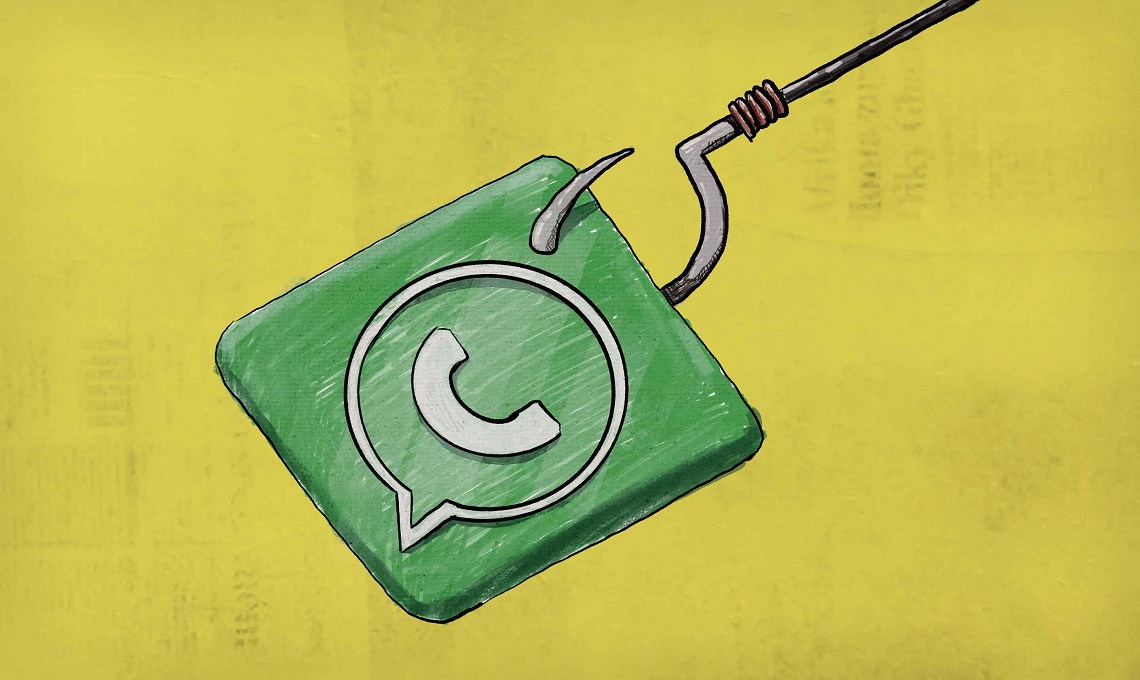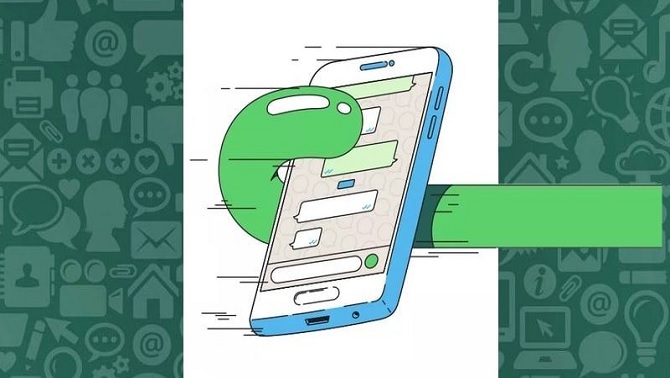We’ve all received scam emails in the past, and for the most part, they’re easy to identify. For that very reason, scammers are constantly looking for new ways to target easy prey, and something that’s gained popularity over the last few years is WhatsApp scams.
According to data, WhatsApp is used by over 2 billion users globally, making it the most popular mobile messenger app in the world. It is a free-to-use messaging app that also allows you to make free calls to other mobile phone numbers.
Such a high user base has pros; for instance, all your friends probably use it. But it also has its cons – malicious people will also use it. Once scammers get hold of your phone number, they will try various techniques to either pry personal information out of you or get you to transfer money to them.
Although there are tried and tested ways that scammers do this, they constantly create new methods to keep their victims guessing. To shed light on the matter, telecoms experts at area-code.uk conducted research to find 10 WhatsApp scams in circulation right now. Let’s explore what they are.
Table of Contents
- 1 WhatsApp scams to be aware of in 2023
WhatsApp scams to be aware of in 2023
Scams include impersonating a friend or family member to gain your trust, enticing you with ‘free’ vouchers, gift cards, and flights, or using time-sensitive emergencies to coax you into making an ill-informed decision.
Some of these scams have been around for a while but have been dormant and are simply resurfacing. However, others are the newest and latest WhatsApp scams used by fraudsters to target unsuspecting victims. Let’s explore them in more detail.
1. Impersonation of a Friend or Family Member
Impersonating a friend or family member is one of the most successful WhatsApp scams that thousands of people fall victim to each year.
The scammer will impersonate someone you know, such as your mum or dad, a friend, or a loved one. They will make up a false reason for messaging you from an unknown number, such as they changed their mobile phone provider and thus have a new number, or they’re borrowing a friend’s phone because their battery died.
They will then explain how they’re in urgent need of some money and will provide you with bank details to send the funds to. By saying it’s an emergency, scammers aim to rush you into action before you have the time to figure out what’s happened.
2. Job Listing Scam
The number of fake job listing scams seems to be increasing as WhatsApp scammers look for alternative methods to target victims. It is simple in practice but extremely effective.
WhatsApp users will receive a message from someone impersonating a recruiter or recruitment agency. The message will detail a job opportunity that offers good money for relatively little work. Since the scammer targets as many people as possible, this will include residents from all over the nation. As such, the “job offer” usually says ‘remote’ or offers a vague location’.
A too-good-to-be-true offer such as this should be a red flag. Still, suppose you engage in the conversation. In that case, the scammer will then ask you to share your personal details, bank details, or documents such as your passport. You may even be asked to send an advanced payment for your work equipment or to conduct a background check – both of which go straight into the scammer’s pockets.
What tends to catch people out is that recruitment agencies are known to send job alerts via text message, particularly for urgent positions. Many people think that receiving this type of WhatsApp message is plausible when in fact, it’s incredibly rare for any recruitment agency or recruiter to send bulk messages through an app such as WhatsApp.
3. Voucher and Gift card Scam
We love a good discount or voucher as much as the next person, which is exactly what some scammers look to take advantage of. Gift card and voucher scams are some of the most common methods by which fraudsters look to scam people out of their hard-earned money.
WhatsApp users will receive a message from an unknown number explaining how they are entitled to win a gift card or voucher. The gift card is usually for supermarkets or a high street store.
This can play out in two ways. Either you will be asked to fill out a survey which asks for your personal information, or the website will download malware onto your device. This malware will then collect all the data from your phone, such as the websites and apps you visit, and any information you enter, such as pin codes and passwords. This information can then be used in identity theft or to transfer money from your bank accounts to theirs.
In any case, all WhatsApp scam messages offering gift cards and vouchers should be ignored.
4. Account Verification Code Scam
The WhatsApp verification code scam is another popular one, where fraudsters attempt to gain access to your WhatsApp account.
You will receive a text message with a six-digit code for verifying a WhatsApp account. You will then receive another text message from an unknown sender who will explain that they are locked out of their account or setting up a new phone number and have sent you their verification code by mistake. Thus, they will need you to send them the code so they can log back in.
What they won’t tell you is that the verification code is not for their WhatsApp account but yours. They have tried to access your account from their device, and since it is not registered to your account, they need the verification code to log in. As such, if you give them the code, you have effectively given them the keys to your account.
Therefore, if you receive a verification code that you have not initiated, it is a clear sign that you are on the receiving end of a WhatsApp scam, and the message should be disregarded.
5. Free Flight Scam
The words ‘free flights’ will get anyone’s attention, and that’s precisely what scammers are banking on.
People are being sent messages about free flights from well-known airlines, such as Emirates and British Airways, to distant locations are far away as Asia. All you need to do is click on the URL and follow the procedure outlined. Sound too good to be true? Well, that’s because it is.
Much like the gift card scam, those who click on the link will be taken to a webpage that will either download malware onto the device or extract sensitive information, such as your passport, address, and bank account details. That’s why you must avoid clicking on the URL and immediately delete the scam message.
On rare occasions, airlines actually have promotions and deals that include free flights. To check if this is the case, always go to the airline’s website and double-check their social media accounts; don’t trust such deals received through a WhatsApp message.
6. WhatsApp Gold Scam
This is one of the most common WhatsApp scams out there and has been around for a while. It does the rounds every few years, and it’s back again in 2023.
WhatsApp users will receive a message inviting them to join WhatsApp Gold, a premium and exclusive version of the app with advanced features reserved only for celebrities and the wealthy. You must download the app using the URL provided to gain access to the Gold version.
But WhatsApp Gold does not exist. Clicking on the URL will download malware onto your device, which the WhatsApp scammer will then use to hack your information and message your contacts pretending to be you, thus continuing to target more victims.
Therefore, ignore and delete the message straight away. If you receive this message from a friend or family member, they have likely fallen victim to the scam. As such, it may also be a good idea to warn your family members and mutual friends.
7. Crypto Scam
Crypto scams are a little less subtle than some of the other scams on this list but can still be effective if you’re not careful.
Scammers will either message you personally or add you to a cryptocurrency group. Posing as a crypto ‘expert’, they will give you a chance to make money by investing through them, offering great returns such as doubling your money in a few weeks.
If you’re in a group chat, there may even be testimonials from other users who substantiate these claims. However, it’s important to note that these users are bots, not real people.
Crypto scams were incredibly popular during the crypto market bull run as more and more people looked to make a quick buck, but it had seemingly died down after the 2022 crash. Still, since the price of Bitcoin increased recently, these types of crypto scams are making a comeback.
8. Lottery Scam
If you’ve ever encountered a lottery scam via email, you’ll be familiar with this one.
The WhatsApp lottery scam is sent by fraudsters who impersonate The National Lottery or other lottery providers. It plays out in one of two ways. Either you will be offered cash prizes or gifts in exchange for a fee, or you will be told you have won a random lottery based on your phone number and need to pay a small charge – both of which are scams.
It’s important to remember that in order to win a lottery prize, you must have entered the competition either through a registered local branch or through the official website. Additionally, no lotteries are based on your phone number or email address, and you are never charged a fee if you win.
9. Romance Scam
Romance scams have been around for decades, but they have now been adapted to modern times.
Typically, you will match with someone on one of the various dating apps, such as Tinder or Bumble, or you may even receive a DM through Instagram. As you build rapport, they will ask for your number to continue the conversation on WhatsApp – a relatively normal part of the online dating process. From here, they will continue the conversation further and keep digging for personal information until they have enough for identity theft, or you may be asked to send them money.
It can be harder to detect this scam since it is eerily similar to a regular dating app interaction. But it’s crucial to be cognizant of what information you have given them and if they are digging too deep too quickly.
However, it doesn’t mean everyone on these apps is out to get you. There are obviously real people looking to meet someone like-minded. So although this scam is more sinister in nature as it uses your search for romance against you, don’t let it completely deter you from using dating apps – it’s just something to be mindful of.
10. Expiring WhatsApp Account Scam
WhatsApp does not expire and is unlikely to be shut down anytime soon. But scammers hope to use this scare tactic to get users to click on malicious links.
Barring a catastrophe, it’s doubtful that Meta – WhatsApp’s parent company – will shut the app down and leave 2 billion users and their messages stranded. Even if it did, such an announcement would be made through official communication channels – not via a message chain – and it would receive mainstream media coverage.
As such, if you receive a message telling you to reactivate your expiring WhatsApp account, it’s a scam. And definitely don’t forward the message to your contacts and perpetuate the scam further.
Final Thoughts
As you can see in this article, there are a wide variety of scams out there, from fake job listings and free flights to the impersonation of friends and loved ones. Typically, they will either try to obtain sensitive information, ask you to send money, or get you to click on a malicious link.
The best thing you can do is not to engage with them. Simply ignore and delete any unsolicited WhatsApp messages. You can also block their number to ensure they can’t contact you again.





